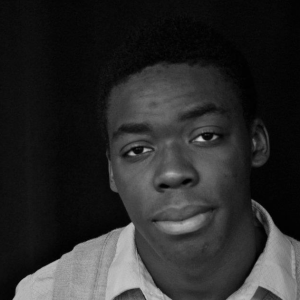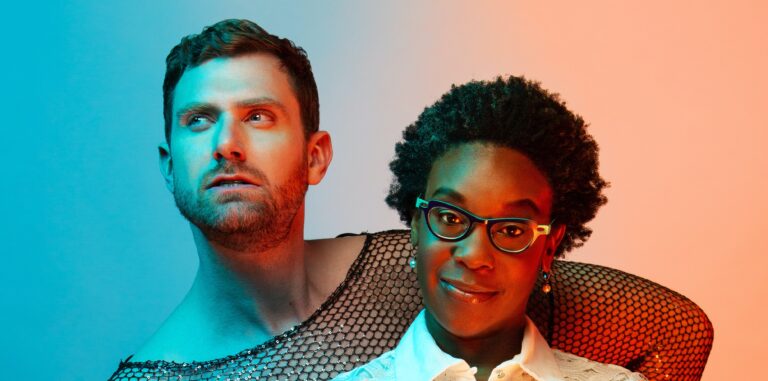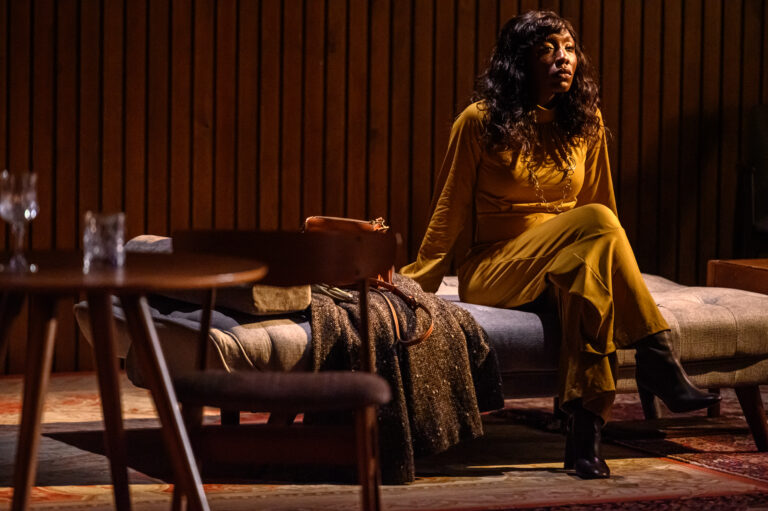“Retribution without Apology”: In Conversation with Is God Is Assistant Director daniel jelani ellis
“No, I don’t believe Black women have been heard enough,” daniel finally answers after a pregnant pause.
My question had been more rhetorical in nature; a concise “Hell no!” would have sufficed. Yet I appreciated the time daniel took in considering how to condense generations of love and pain into a quotable sound bite. #protectBlackwomen is a popular hashtag, but are we ready to address the changes in society necessary for that to happen?
I was first introduced to daniel after a performance of Lukumi: A Dub Opera, by d’bi.young anitafrika and Watah Theatre. Though years have passed, I still get chills when I think of the vivid theatrical experience that was Lukumi. To put it lightly, it was a psychedelic exploration of our Black ancestors, as experienced through the womb of a Black woman. daniel’s enrapturing performance as a trickster and witch doctor incarnate had been a masterclass in play and charisma.
As a young Black artist growing up in the prairies, my life vacillated between petting horses and avoiding police shootings. In the interim, I obsessively dreamt about leaving my hometown to pursue the arts out east. Long before I’d ever moved to either city, I’d read articles and press clippings about Black theatre artists in Toronto and Montreal, dreaming of the day I too would join their ranks. As fate would have it, before we’d ever crossed paths in Toronto, daniel’s training at the prestigious National Theatre School of Canada would inspire me, proving that such success was possible for a young Black individual like myself.
“I think the future of Black theatre is in the youth. The young people,” daniel tells me confidently.
Today, daniel still acts, but he also directs. As part of a Metcalf Foundation internship with Obsidian Theatre, daniel is currently the assistant director of Is God Is, presented by Canadian Stage in partnership with Obsidian and Necessary Angel Theatre. The play centres around two Black sisters going on a violent crusade of patricide across America. This synopsis gives me pause, with my inner cynic interpreting it as yet another piece about Black pain and suffering.
“I share that kind of feeling about the Black trauma. Trauma period,” daniel emphasizes.
“I’m in a place where I’m not really interested in the pain and suffering and trauma; couching the art in that. But that’s not what this piece is. There is pain, and there is suffering, and there is trauma, but this piece is definitely about enacting a retribution on the person who enacted that. The central thing is not the pain and the suffering and the trauma. It is the transformation of that. It’s a full expression of rage, and enacting this retribution without apology.”
Like the works of many prolific Black American playwrights — Gloria and Everybody by Brandon Jacobs-Jenkins, or Pipeline by Dominique Morisseau, for instance — a Canadian production of Aleshea Harris’ Is God Is was an inevitability. While the mainstream would have you believe Black people are a monolith, there exists deep nuance in the Black experience of each respective nation. Just how much would be lost in translation by having this deeply American piece be interpreted by Canadian creatives?
“Speaking on my experience working on Is God Is, I don’t think any aspects are lost in translation,” muses daniel.
“In terms of table work and the process of understanding the world and the very African-American aspect of the piece, we took the time to make sure we were translating it for ourselves so there was understanding. There is also a kind of Afro-diasporic Black mythology. Folks who may not have the same experience, language, or culture as the African-American experience – there is a recognition there.”
Tales of the diaspora are a recurring theme in daniel’s work.
“I’m an immigrant, and inherent in that, there is a place I’m coming from,” says daniel.
“So the place I’m coming from informs my art without a doubt. I am presently in residence with the Theatre Centre, where I’m working on some plays. The plays are grounded in immigrant experience, to be honest. The plays feature folks who have left a homeland, and are now home in Canada. The immigrant experience is a huge influence on my work.”
daniel describes to me his ongoing research into the cultural form known as Jankunu, which originates from his native Jamaica.
“The research is going to shift into starting to articulate and mold a kind of methodology using Jankunu. Though I’m not in Jamaica, and Jankunu is not a practice that exists here, I’m interested in using Jankunu as a frame for making art and engaging with youth and community.”
From the outside looking in, there is a clear throughline in daniel’s work — he is consistently seeking out opportunities to tell Black stories with renowned Black artists, from the aforementioned d’bi.young anitafrika to Mumbi Tindyebwa Otu, director of Is God Is.
“It’s absolutely a conscious choice for me,” says daniel.
“I wouldn’t say the choice is to exclusively do Black shows. But there definitely is an intentionality for me in deciding what opportunities to pursue, one-hundred percent. It was very exciting to have this offer to be a part of this project which is very Black, as you identified. It’s a Black show that’s supported by a beautifully diverse team. That’s always been a value of mine, to be intentional about what kind of opportunities I’m pursuing and what kind of art I’m making. So it’s not always purely Black, but it’s intentional.”
Yet for every daniel who is able to succeed in their chosen industry as a multidisciplinary Black artist, it appears that there are ten other Black creatives unable to get their script read, or who aren’t even offered a timeslot in the audition room. It’s a disconnect that daniel readily acknowledges.
“I think there is a gap between young Black creatives and their peers for sure,” says daniel.
“The gap is not in the talent — it’s in the opportunities. Though we are in a cultural shift in terms of the industry prioritizing equity, diversity, and inclusion,” daniel muses, noting that these terms are currently industry-standard and not what he might use, “there is this shift to welcome historically marginalized and straight-up excluded folks. Because of this shift, there are some opportunities that are now available. So the gap is being addressed, it’s closing, but there is a gap still.”
In 2019, as part of Why Not/RISER, daniel wrote, acted in, and produced the piece speaking of sneaking, which ultimately was nominated for five Dora Mavor Moore Awards — an extremely formative experience for the talented multi-hyphenate.
“Talking about expansion of artistic boundaries, my producing practice was really formalized there and I gained so much insight in how to take the art from the page to the stage,” says daniel.
“Knowing how to do that has been massive. I’ve expanded my network of artist collaborators…I want to do theater in more decolonial ways, having worked very intimately with d’bi and Brian Solomon, who are both invested in creating art outside of the conventional, colonial way of making art. That’s why I’m formalizing my research, and doing all the Jankunu stuff. It’s been big — it clarified the path I want to take through art.”
The Canadian premiere of Is God Is, directed by Mumbi Tindyebwa and assistant directed by daniel jelani ellis, opens on May 11, 2022, and runs until May 22. Tickets are available here.












Comments